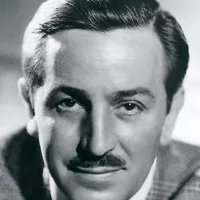Starz is an American pay television network owned by Starz Entertainment. Launched in 1994, it primarily showcases theatrically released movies and original television series. Starz operates multiple 24-hour channels and provides video-on-demand services. It offers both a traditional subscription service and an over-the-top streaming platform, catering to both linear TV subscribers and streaming-only customers.
May 31, 1993: Acquisition of Universal Pictures Pay-TV Rights
On May 31, 1993, Encore acquired the pay cable rights to broadcast recent feature films from Universal Pictures released after that year, leading to the creation of Starz as a competitor to HBO and Showtime.
1993: Decision to Launch Starz
In 1993, Encore decided to launch Starz as a competitor to HBO and Showtime after it acquired the pay-TV rights to broadcast films by Universal Studios released after 1993.
February 1, 1994: Starz Launch
On February 1, 1994, Starz, stylized as STARZ, launched as a multiplex service. Its programming included theatrically released motion pictures and original television series.
February 1994: Starz launched with original logo
In February 1994, Starz launched with a logo featuring two silhouettes (one star cut out from another, larger one) and a 1930s movie-styled "STARZ!" text. The graphics package was set around a CGI movie theater.
September 1994: Multiplex Channel Launch
In September 1994, Starz launched as the first phase of a seven-channel thematic multiplex by Starz (then Encore Media Group).
1994: Themed Multiplex Service Launch
In 1994, Encore launched the pay television industry's first "themed" multiplex service with seven additional movie channels, though the intent was to launch Starz as a competitor to HBO and Showtime.
1994: Original Starz logo launched
In 1994, Starz launched with a logo featuring a star and "STARZ!" text.
1994: Encore Wam launched
In 1994, sister channel Encore's multiplex channel Encore Wam launched.
September 1995: First Major Carriage Agreement
In September 1995, Starz signed its first major carriage agreement outside the TCI group through a deal with Continental Cablevision.
1996: Subscriber Count
By 1996, Starz was available to an estimated 2.8 million pay television subscribers.
1996: Abandonment of Numbering System
In 1996, the numbering system used for each Encore channel was abandoned for most of the channels.
January 1997: Licensing agreement with Paramount Pictures secured
In January 1997, Starz secured a licensing agreement with Paramount Pictures, which allowed them to broadcast over 300 titles. Films broadcast through this deal included Dear God, All I Want for Christmas and Boomerang.
June 2, 1997: TCI Transfers Ownership to Liberty Media
On June 2, 1997, TCI announced a deal to transfer majority ownership of Encore Media Group, which operated Starz, to sister company Liberty Media. TCI retained a 20% minority ownership interest.
June 1997: Comcast Agreement
In June 1997, Comcast signed an agreement to carry Starz on its Pennsylvania and New Jersey systems to replace Philadelphia-based PRISM.
1997: Annual Losses
By 1997, Starz faced annual losses of US$150 million and total deficits topping US$203 million.
1997: Acquisition of Disney Studio Films
In 1997, Starz began carrying films from the Disney-owned studios Touchstone Pictures, Hollywood Pictures and Miramax Films, after Disney's output agreement with Showtime for its non-family-oriented films concluded.
1997: Starz lost Dimension Films rights to Showtime
In 1997, Starz lost its rights to many of the Dimension Films to Showtime, due to its violent content surrounding the films, except for several future Jackie Chan films Dimension Films released, which Starz kept the rights.
1997: BET Movies: Starz! 3 Debut
In 1997, a joint venture with BET Networks called BET Movies: Starz! 3 debuted.
May 1998: Subscriber Base Reaches 7.6 Million
By May 1998, Starz maintained a subscriber base reaching 7.6 million households with a cable or satellite television subscription.
May 1999: Additional Multiplex Channel Launches
In May 1999, two additional multiplex channels began operations: Starz! Family and Starz! Cinema. Starz! 2 was also renamed Starz! Theater.
July 1999: Addition of Recent Films to Starz Encore
In July 1999, Starz Encore (then Encore) which initially focused on films released between the 1960s and the 1980s, started adding recent film fare itself.
August 1999: Four-year deal with Dimension Films
In August 1999, Starz preemptively signed a four-year deal with Dimension Films that would take effect in January 2003. This deal was in conjunction with a four-year extension of its existing deal with Miramax Films and the rest of the Disney family.
1999: Starz Encore Entertainment formed
In 1999, Starz expanded into original content and formed Starz Encore Entertainment to produce entertainment news programs and shows focused on the making of feature films.
1999: Liberty Media Assumes Stake
In 1999, following TCI's merger with AT&T Corporation, Liberty Media assumed TCI's stake in the subsidiary that operated Starz.
January 2000: Carriage Dispute Replacement
In January 2000, a dispute between Cox Communications and Fox Television Stations resulted in Starz! Family replacing Fox owned-and-operated stations in six markets.
2000: Renaming of Encore Media Group
In 2000, Encore Media Group was renamed Starz Encore Media Group.
2001: Rebranding of BET Movies: Starz!
In 2001, BET Movies: Starz! was rebranded as Black Starz! after BET withdrew from the partnership during its acquisition by Viacom.
May 2002: New graphics package introduced
In May 2002, the "theater" branding used since Starz's launch was replaced with a new graphics package based around natural themes (particularly water). A seven-note fanfare was also introduced as a musical motif.
2002: Starz gains rights to Disney animated films
In 2002, Starz acquired the pay television rights to Disney's animated films, which had previously bypassed a pay television window.
2002: End of "Encore 8" Moniker
Until 2002, Starz heavily included the "Encore 8" moniker in its main IDs, feature presentation bumpers and select bumpers, even as it transitioned into a separate channel from Encore.
January 2003: Dimension Films deal takes effect
In January 2003, the four-year deal that Starz signed with Dimension Films in August 1999 took effect. This was in conjunction with a four-year extension of its existing deal with Miramax Films and the rest of the Disney family.
2003: Corporate Restructuring
As part of a corporate restructuring plan in 2003, Starz Encore Group eliminated 100 jobs in its nine regional offices, and closed four of the offices outright.
2004: Launch of Starz! Kids
In 2004, Starz! Kids was launched as a movie service featuring films aimed at children between 2 and 11 years of age.
March 2005: Starz logo replaced
In March 2005, the 1994 Starz logo was replaced with an abstract star shooting upwards and a modern "starz" wordmark in Helvetica Neue as part of a major rebrand of the network.
March 25, 2005: Renaming of Starz Encore Group
On March 25, 2005, the Starz Encore Group corporate entity was renamed Starz Entertainment.
March 27, 2005: Original logo used until March 27, 2005
The original Starz logo that was used from its launch in February 1994 until March 27, 2005, featured two silhouettes (one star cut out from another, larger one), and a 1930s movie-styled "STARZ!" text.
March 28, 2005: Rebranding as "starz"
On March 28, 2005, Starz introduced a new logo and was subsequently rebranded as "starz", in all lowercase.
2005: Starz expands original programming slate
In 2005, Starz began expanding its original programming slate to compete with rivals like Showtime and HBO, and Starz Encore Entertainment was renamed Starz Originals.
January 2006: Paramount Pictures' first contract with Starz expired
In January 2006, Paramount Pictures' first contract with Starz expired.
2007: Opaque on-screen logo bug appears throughout the movie
Starting in Summer 2007, the 2005 logo bug for every Starz, Encore and Movieplex channel appeared throughout the whole movie.
April 7, 2008: Starz replaced the opaque on-screen logo bugs
On April 7, 2008, Starz replaced the opaque on-screen logo bugs with a white logo bug on all channels and a bright orange bug for Starz HD.
April 2008: Starz screenbug reverted to two minutes every half hour
During the April 2008 rebrand, Starz reverted every screenbug back to appearing for two minutes every half hour, except for Encore, Movieplex, and Starz Cinema.
April 2008: Starz introduced a new logo
In April 2008, Starz introduced a new logo with a new "starz" wordmark and a star shining between the "a" and "r".
October 19, 2009: Warren Miller output deal renewed
On October 19, 2009, the Warren Miller output deal was renewed for 10 years.
November 19, 2009: Spin-off into Liberty Starz
On November 19, 2009, Liberty Media spun off Starz into a separate public tracking stock called Liberty Starz.
2009: Encore Wam ended
In 2009, sister channel Encore's multiplex channel Encore Wam ended.
January 1, 2010: Chris Albrecht Joins Starz
On January 1, 2010, Chris Albrecht joined Starz as its president and chief executive officer.
2010: Half-hour and hour-long series incorporated
By 2010, Starz incorporated half-hour and hour-long series onto its schedule, including shows such as Spartacus.
March 2011: Camp Block launched on Starz Kids & Family
In March 2011, the channel Starz Kids & Family launched the "Camp Block" programming block.
April 2011: Starz logo color modified
In April 2011, the coloring of the logo was modified to an orange/gold gradient.
July 2011: HD simulcast feed for Starz Kids & Family
In July 2011, Starz Kids & Family's HD simulcast feed launched with a bright orange logo bug.
2011: Starz airs Spartacus and Torchwood: Miracle Day
In 2011, Starz aired shows such as Spartacus, Torchwood: Miracle Day, Boss and Da Vinci's Demons.
2011: Starz original series debuts reached a high
The number of original series that debuted each year on Starz has varied, reaching a high of four series during the 2011 calendar year.
January 2012: Camp Block was renamed Six Block
In January 2012, "Camp Block" was renamed to "Six Block" and was moved to a set timeslot of 6:00 pm Eastern Time.
August 8, 2012: Spin-off Announcement
On August 8, 2012, Liberty Media announced that it would spin off the Liberty Starz subsidiary into a separate publicly traded company.
January 11, 2013: Completion of Spin-off
On January 11, 2013, the spin-off of the Liberty Starz subsidiary was completed, and Liberty Starz changed its name to Starz as a result.
February 11, 2013: Sony film output agreement renewed
On February 11, 2013, the first-run film output agreement with Sony was renewed for nine years.
April 2013: Starz reassumed sub-run rights to Paramount Pictures
In April 2013, Starz reassumed sub-run rights to Paramount Pictures' feature film releases.
October 2013: Starz orders Outlander series
In October 2013, Starz gave a series order to Outlander, a drama based on the Outlander book series by Diana Gabaldon. Production began in Scotland, where the books are set.
2013: Logo bug reverted to two-minutes every half hour
After the 2011 rebrand, the white logo bug for every Starz channel stayed on-screen throughout the whole movie again until the 2013 rebrand, when it reverted to two-minutes every half hour, also applying to Encore channels.
2013: Temporary Station Replacement
In 2013, Starz Kids & Family was used by cable providers to temporarily replace television stations dropped due to carriage disputes, such as during Journal Broadcast Group's dispute with Time Warner Cable.
December 2015: Walt Disney Studios Motion Pictures agreement expired
In December 2015, the first-run film output agreement between Starz and Walt Disney Studios Motion Pictures expired.
2015: No Official Marketed Name
As of 2015, the Starz multiplex has no "official" marketed name.
2015: Outlander received five nominations for the 2015 Women's Image Network Awards
Outlander received five nominations for the 2015 Women's Image Network Awards, including a nomination in the Drama Series category. Caitriona Balfe, who plays the leading character in the show, also received a nomination in the Actress Drama Series category.
January 2016: Netflix assumed pay television rights to Disney
In January 2016, Netflix assumed pay television rights to Disney films, excluding films released by Touchstone Pictures, which were retained by Starz through a separate contract. Through the first half of 2016, Starz provided Disney films released before the expiration, such as Inside Out and The Good Dinosaur.
March 28, 2016: New Logo and Tagline
On March 28, 2016, Starz introduced a new logo and tagline, "Obsessable", coinciding with a revamp of the Starz channels effective April 5 of that year.
April 5, 2016: Rebranding as "STARZ"
On April 5, 2016, Starz was rebranded, introducing a new logo, this time stylized as "STARZ" in all uppercase. Starz added all the Encore channels to its moniker, therefore increasing the Starz channel lineup to 14 Starz premium channels and Starz Encore carried reruns of Starz Originals in addition to films.
June 30, 2016: Lionsgate Acquisition Agreement
On June 30, 2016, Lionsgate agreed to acquire Starz Inc. for $4.4 billion in cash and stock.
September 2016: Return of Children's Programming
In September 2016, Starz brought back children's programming on a weekday morning block with shows from Nelvana, WIldBrain, and The Jim Henson Company.
2016: Lionsgate acquisition of Starz
Following Starz's 2016 acquisition by Lionsgate, the network increased its production of original content, with Starz becoming a "content pump" for Lionsgate.
2016: Starz logo redesigned
In 2016, Starz redesigned its logo again, with a new uppercase "STARZ" wordmark in black. When it appeared on-screen, it was white against a black background.
April 2019: Criticism for DMCA Takedown Requests
In April 2019, Starz faced criticism for sending legal demands to Twitter to remove links to a news article about piracy. Starz later apologized and clarified that the invalid DMCA claims were sent by a third-party contractor, The Social Element.
2019: Warren Miller output deal ended
In 2019, the Warren Miller output deal ended.
December 2020: Removal of Children's Programming Block
In December 2020, Starz removed the children's programming block for reruns of another show Starz acquired, Pit Pony.
April 8, 2021: Sony ends agreement with Starz, favors Netflix
On April 8, 2021, Sony announced that they would not be renewing their first-run film output agreement with Starz, and would instead be entering into a new agreement with Netflix.
December 2022: Little Charmers Reruns End
In December 2022, reruns of Little Charmers on Starz ended.
2022: Starz logo updated
In 2022, following the renaming of StarzPlay to Lionsgate+, Starz got a new logo, with a bolder teal wordmark, which appears in a yellow-sky blue gradient on-screen.
2024: Lionsgate Renamed to Starz Entertainment
In 2024, Lionsgate was renamed to Starz Entertainment, 6 months after spinning off most of their businesses into a new company known as Lionsgate Studios.
2024: Subscriber Count
In 2024, Starz's video on demand streaming media service had 27.92 million paid subscribers.
Mentioned in this timeline
Home Box Office HBO is an American pay television service...
Xbox is a video gaming brand owned by Microsoft Gaming...

Walter Elias Disney was a highly influential American animator film...

Amazon Prime is a subscription service offering a variety of...

Sony is a Japanese multinational conglomerate based in Tokyo Its...

The iPad is a line of tablet computers designed developed...
Trending

8 months ago Bailey Zimmerman Serves Chicken, Announces New Album 'Different Night Same Rodeo'

8 months ago Alex Warren to electrify the 2025 American Music Awards with a stellar performance.
3 months ago Lockheed Martin Exceeds Q3 Expectations, Increases Dividend and Buyback Program, Raises Profit Outlook

3 months ago Alex Eala Enters Hong Kong Campaign with Career-High Ranking, World No. 51
6 months ago SAP's Stock Falls Amid Mixed Q2 Earnings & AI Concerns: Investor Outlook

Amy Klobuchar is a prominent American politician and lawyer Since she has served as the senior United States Senator from...
Popular

Thomas Douglas Homan is an American law enforcement officer who...

William Franklin Graham III commonly known as Franklin Graham is...

Jupiter is the fifth and largest planet from the Sun...

XXXTentacion born Jahseh Dwayne Ricardo Onfroy was a controversial yet...

Kristi Noem is an American politician who has served as...

Instagram is a photo and video-sharing social networking service owned...